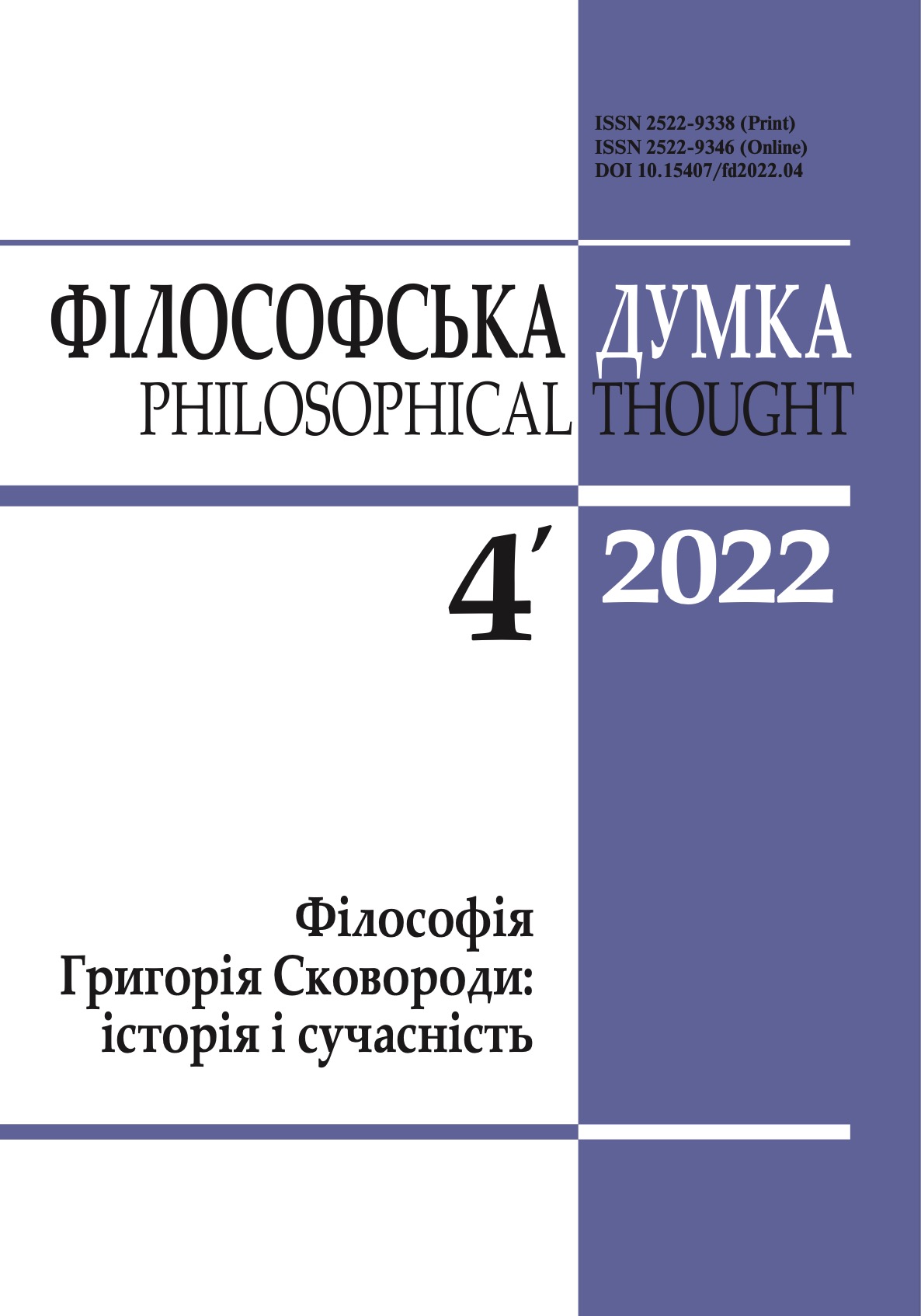ATTACK ON IDENTITY. (Russian culture as an existential threat to Ukraine)
DOI:
https://doi.org/10.15407/fd2022.04.145Keywords:
historical narratives, cultural background of imperial identity, geopolitical projects, simulacrum, false realityAbstract
The article deals with the role of Russian culture in the period of the RF war against Ukraine. The history is considered as the basic structure that shapes the discursive foundation of identity. Historical narratives as well as the cultural background of imperial identity and risks of the full scale representation of Russian culture in the Ukrainian social consciousness are analyzed. The two tendencies are also comprehended — junk science foundation of geopolitical projects and devalu- ation of the historically formed senses. So the communicative action is penetrated by the strategic action bazed on the false reality fundament, this significant element of the war of the world. The vivid example of junk science is the neoeurasian ideology, that defines the strategy of Kremlin informational attack on the Ukrainian identity. Standoff between the identities takes place in the course of the imperial mobilization project development. The symbiosis of governmental authorities and artists plays the key role in its realization. The author outlines the main features of the strategic effect of penetration into the core of communicative process and the false reality building.
Also the author develops the thought that the heartbreaking and impetuous change of con- tradictory narratives are the one of the fundamental resources of information war. In particular it deals with the great Russian Simulacrum as the vivid example of the instrumental reason that is in the base of the information war against Ukraine. It is also defined the historical origin of the simulacra as the instrument of the Russian special services and the role of their partners — the iconic figures of the Russian literature — in the projects of the public opinion manipulation.
References
Adorno, Th.W., Frenkel-Brunswik, E., Levinson, D., Sanford, N. (1950). The Authoritarian Personality.Studies in Prejudice Series. Vol. 1. New York.
Diagnosis of our Time. Wartime Essays of a Sociologist (1943). London: Routledge & Kegan Paul. Dostoyevskii, F.M. (1983). Polnoye sobraniye sochinenii. In 30 vols. Vol. 25. [In Russain]. Leningrad.
Faye, E. (2005). Heidegger: l’introduction au nazisme dans la philosophie. Paris: Albin Michel. Habermas, J. (2020). Technik und Wissenschaft als “Ideologie”. Frankfurt a.M.: Suhrkamp.
Mannheim, K. (1929). Ideologie and Utopie. Bonn: Klostermann.
Obukhov, G. (2015). Agressor i professor. [In Russian]. Radio Svoboda, March 15. Retrieved from: https://www.svoboda.org/a/26907371.html.
Reich, W. (s.a.). Ether, God and devil: cosmic superimposition. Retrieved from: https://www.good-reads.com/work/quotes/496652-ether-god-and-devil-cosmic-superimposition.
Downloads
-
PDF (Українська)
Downloads: 420
Published
How to Cite
Issue
Section
License
Authors who publish with this journal agree to the following terms:
- Authors retain copyright and grant the journal right of first publication.
- Authors are able to enter into separate, additional contractual arrangements for the non-exclusive distribution of the journal's published version of the work (e.g., post it to an institutional repository or publish it in a book), with an acknowledgement of its initial publication in this journal.
- Authors are permitted and encouraged to post their work online (e.g., in institutional repositories or on their website) prior to and during the submission process, as it can lead to productive exchanges, as well as earlier and greater citation of published work (See The Effect of Open Access).


